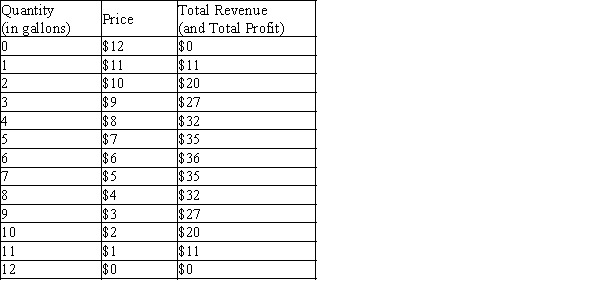Table 17-2
Imagine a small town in which only two residents, Abby and Brad, own wells that produce safe drinking water. Each week Abby and Brad work together to decide how many gallons of water to pump. They bring water to town and sell it at whatever price the market will bear. To keep things simple, suppose that Abby and Brad can pump as much water as they want without cost so that the marginal cost is zero. The weekly town demand schedule and total revenue schedule for water is shown in the table below: 
-Refer to Table 17-2. If this market for water were perfectly competitive instead of monopolistic, what would be the price for water?
Definitions:
Discount Rate
The interest rate used to discount future cash flows to their present value, reflecting the time value of money.
Operating Leverage
A measure of how sensitive a company's operating income is to a change in its sales volume.
Operating Cash Flow
Operating cash flow is the money generated from a company's regular business operations, highlighting its capacity to sustain and grow operations.
Fixed Cost
Overhead expenses that remain constant regardless of the volume of goods or services produced by a business.
Q74: Refer to Table 17-7. Assume there are
Q128: Refer to Figure 17-5. If the two
Q229: In monopolistically competitive markets, positive economic profits<br>A)
Q283: Refer to Table 16-4. What price will
Q328: Briefly describe the practice of resale price
Q349: When a firm operates with excess capacity,<br>A)
Q381: Which of the following is not an
Q407: The primary claim of defenders of advertising
Q453: The prisoners' dilemma game<br>A) provides insight into
Q479: Firms do not need to be concerned